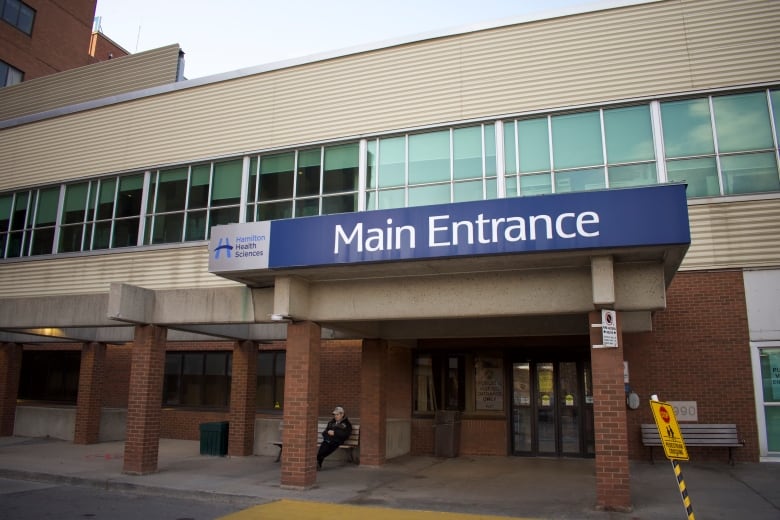Hundreds of Hamilton hospital beds for COVID patients are empty as other treatments delayed
'My patient's colon cancer hasn't gone away because of COVID-19 — the treatments have'
Greg Warren doesn't have COVID-19, but he's a victim of it. The Port Dover man lives with a cancerous tumour in his jaw.
If the world wasn't at the mercy of a pandemic, he wouldn't be living with it right now, but 15 days before his scheduled operation at the end of March, he was asked to wait so health-care workers could treat a patient in a near-death situation.
Warren obliged, knowing he could.
"I was disappointed because ... everything was set up, nurses were set up to come see me ... but you've got to do what you've got to do."
Quiet hospitals brace for COVID-19
Health-care workers are having to choose one patient over another as they try to create room for COVID-19 patients.
Elective surgeries have been cancelled and some patients, like Warren, are afraid to enter an emergency room for fear of getting infected.
It has caused Hamilton's hospitals to become emptier than they've ever been, as they play a waiting game for the expected surge of COVID-19 patients. According to provincial models, that surge was expected as early as this week, but has not yet materialized.

St. Joseph's Healthcare Hamilton has a total of 810 beds, 60 per cent of which are being used. Hamilton Health Sciences (HHS) has 1,280 beds at roughly 80 per cent capacity — both hospital networks normally function above their maximum capacity.
HHS has 300 beds for COVID-19 patients and St. Joe's has 150 beds. Only 17 of those beds are occupied as of Friday afternoon.
But, it's a reprieve before an expected influx of COVID-19 cases that could overwhelm resources, with provincial modelling showing that there wouldn't be enough intensive care unit hospital beds for patients in the worst case scenario.

"Everyone is getting anxious but we have to be cautious ... we can't move too quickly and think we're out of the woods," Vicki McKenna, president of the Ontario Nurses' Association, said.
"There's a chance of a spike and that's why the hospitals are sitting ready, it's a waiting game ... the hospitals, they've emptied out, they've got bed space, they have ICU space, so let's just hope we don't have to use them."
Still, Michael Hurley, president of the Ontario Council of Hospital Unions/CUPE, told CBC News the hospital numbers aren't low enough.
"Hamilton Health Sciences at 80 per cent is only five per cent away from what the British would consider to be a perfect level of occupancy, which is 85 per cent. Anything higher they would consider unsafe and yet that hospital is routinely operating well over 100 per cent and that's because it doesn't have enough beds and staff," he said.
Potential surge in people waiting for care
Right now, the surge hasn't hit the city and if it doesn't, many would consider it a crisis averted — but Dr. Sohail Gandhi, Ontario Medical Association president, said he's scared about what may come afterward.
"There hasn't been any thought put into how healthcare is going to return to normal as this pandemic passes," he told CBC News.
He predicts a surge in patients, like Warren, who have been forced to wait for care.
"Hospitals are always 110 per cent full, they're that full because the need is there … my patient's glaucoma hasn't gone away because of COVID-19, my patient's colon cancer hasn't gone away because of COVID-19 — the treatments have," he said.
"A couple months from now they won't be at 105 per cent like they usually were, they'll be at 120 per cent or 125 per cent because they'll have this incredible deluge."
A waiting game
Hurley adds COVID-19 may not only appear in one wave.
"Once social distancing eases, the number of COVID-19 cases will likely increase and you're going to see the pressure mount on the hospitals."
Both Hurley and Gandhi said it is a prime example of the province not doing enough to bolster healthcare.
But it doesn't leave patients like Warren with many options.
And for now, his only choice is to wait.

